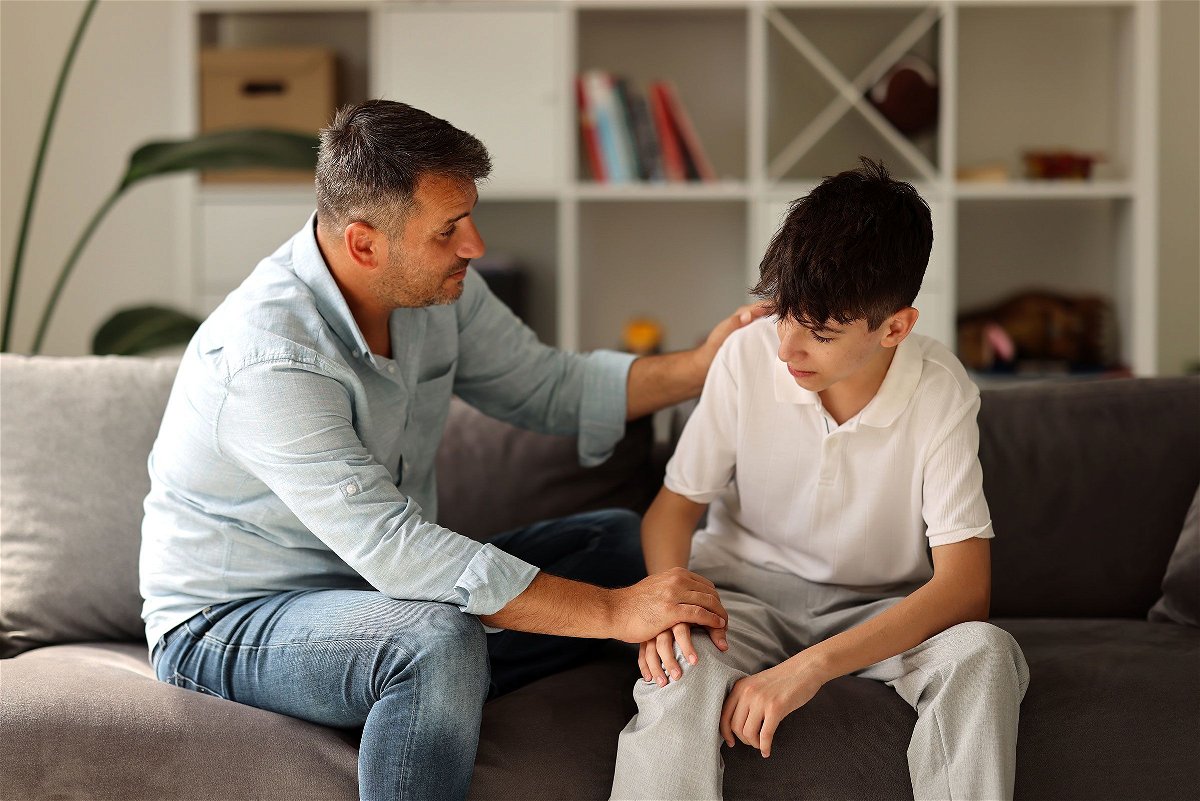You need to talk to your teen about sex. This expert’s new book tells you how

Author Debby Herbenick is a researcher and professor at the Indiana University School of Public Health.
(CNN) — Revenge porn. Rough sex. Nude photos: What we may have once viewed as “adult” topics are now commonplace in high school circles — and even among some younger kids, too. While it’s easy to blame social media and the internet for these unsettling trends, parents and schools also play a part. To inoculate against what teens may search for or stumble into online, they need to receive quality sex education at school and have non-shaming conversations at home.
It’s not easy. Many kids won’t even tell their parents about their day or come out of their rooms, so how do we get them to open up about sex? As parents, we need to know how to initiate these difficult and daunting conversations, and we need to understand what today’s teen is up against. To give us some much-needed guidance, I sat down with Debby Herbenick, a researcher and professor at the Indiana University School of Public Health, whose new book, “Yes, Your Kid: What Parents Need to Know About Today’s Teens and Sex,” was just published.
This conversation has been edited and condensed for clarity.
Ian Kerner: I consider you one of the country’s most credible sources of accurate scientific information when it comes to sexuality. What compelled you to explore the topic of teens and sex?
Debby Herbenick: I’m a sex researcher and educator, but I’m also a mom. Part of what compelled me is having a lot of familiarity with many of the parenting books out there that deal with sexuality, but also realizing that we needed an updated version. The world has changed so much in terms of technology, internet access, social media platforms, and even the ways that teenagers and young adults are having sex. My research really focuses on these changing sexual norms. I’m hoping “Yes, Your Kid” can catch parents up on what sex is like today and support them becoming more comfortable around these difficult topics.
Kerner: One of the trends you discuss that I found surprising — and, as a parent, a bit triggering — was rough sex and even choking among teens.
Herbenick: This was a huge motivation for me in writing this book. My research has shown that close to 40% of women ages 18 to 29 report having been choked during sex. Choking is a form of strangulation: It involves placing one or both hands or a forearm or a ligature around the neck to restrict blood flow, airflow or both. This used to be considered a relatively rare practice. But now we’re seeing that choking specifically, but other kinds of rough sex, too, is everywhere. It’s in mainstream pornography. It’s in lots of TikTok videos. It’s in social media memes.
This is invisible to a lot of adults because we’re not using social media in ways that the algorithm serves up that kind of content. But it’s something that we’ve got to learn about, especially because there are risks to it. It’s very rare, but people can and do sometimes die from being choked or strangled during sex. More often, we see young people experiencing recurrent headaches, neck bruising, neck swelling, and vocal changes from choking.
Kerner: Are teens doing this for pleasure? Or is it because they think everyone else is doing it?
Herbenick: When we started this research, I thought that maybe being choked was about enhancing arousal or orgasm. But we found that most people said it was about being sexually exciting or adventurous or feeling like they’re “kinky.” So, even if they aren’t being pressured by a partner, they get this sense from what they see online that everyone’s doing these super-kinky things, and it’s just how sex is. Whether or not they like it, a lot of people accept it as part of what sex is like today.
Kerner: You also write about image-based sexual abuse, or so-called revenge porn. What do parents need to know about that?
Herbenick: This is an umbrella term that includes aggressive, abusive or coercive acts that involve getting pictures, videos or digital images and then sharing them. It can also involve getting pictures with consent, but then distributing them without consent, or threatening to do so — known as “sextortion.” Our research shows that around 5% of teens say they’ve experienced sextortion and many more have had their images shared. There’s also really striking data showing that 9% of 9- to 12-year-olds say they’ve forwarded another person’s nude or nearly nude image without permission.
Those kids may not necessarily be sharing images to be abusive or coercive, but it’s illegal to take and share nude images of minors, even when it’s consensual. (So) we’ve also got to talk with our kids about not sharing those images. We want our kids to be good people who care about others and take care of their friends.
Kerner: You also cover a couple of topics that feel very of the moment, which are online image-based evaluative voyeurism and deep fakes.
Herbenick: These are really concerns that are so new, parents may not be aware of them. The first is what are commonly called “slut pages”: People collect images — almost always of women — that they’ve gotten consensually or non-consensually; and then, usually non-consensually, post them in private Facebook groups, chats, websites or group texts. I think it’s important for parents to talk with their kids about what misogyny is and how women and girls get treated.
With deep fakes, there are apps and AI websites where you can upload a picture of someone and have them turned into deep fakes, where they are shown nude or shown doing sexual things. The fake image looks totally real. Again, we as parents need to try to preempt this and say, “I heard about this and want you to know how I feel. It’s not acceptable. You don’t harm other people this way.” We need to take a role in instilling sexual values and sexual ethics in kids in an age where it’s so easy to just slip into the unethical and destructive.
Kerner: There’s so much to discuss! How can parents start having these important — even if uncomfortable — conversations with our kids?
Herbenick: Talking about sex is one of the most important conversations that parents could be having with our teens, especially now. I share a lot of good strategies in the book for having these conversations, but these are some of my favorites:
- Commit to five minutes a week. Set a timer and use that five minutes to talk about sex with your kid. When the timer sounds, you can end the discussion or keep going.
- Ask questions. Chances are that your teen knows more about some trends and topics than you. Start off with, “I heard about XYZ. Can you help me understand that?”
- Take advantage of their curiosity. Kids love to eavesdrop, so just start talking responsibly about sex with another adult, knowing you’ll be overheard.
- Acknowledge your discomfort. If you’re shocked by your teen’s question or comment, stay calm and take a breath before you respond. And if you lose your cool, apologize and try again later. You want to be a model for your child by showing them that people can repair and reconnect after an argument.
- Be there for other kids. Just by being an accepting, supportive, knowledgeable, open person, you can be an adult who kids trust when they don’t feel comfortable talking to their own parents.
- Share the book. Put sticky notes in sections that you know your teen doesn’t want to discuss directly with you. Give it to them and let them peruse on their own.
I wrote “Yes, Your Kid” out of concern, but also from a place of hope and optimism. Let your teen know that you want them to have fulfilling relationships in life — and that may include sex if they want. Be that resource and safety net for them.
The-CNN-Wire
™ & © 2024 Cable News Network, Inc., a Warner Bros. Discovery Company. All rights reserved.


